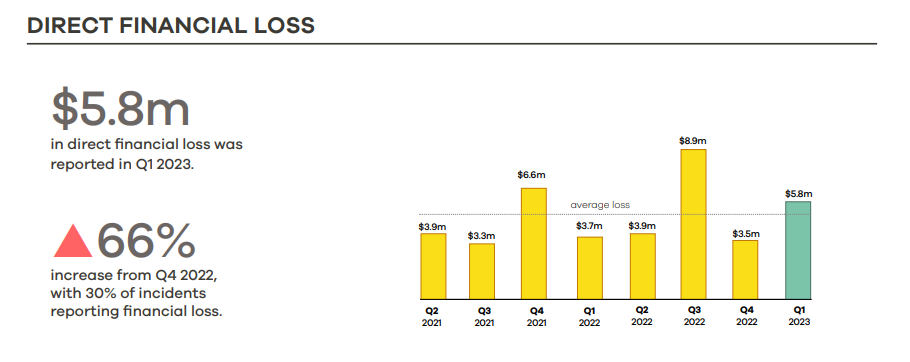
Modern technology has allowed businesses to make operations more convenient, profitable and innovative. However, with a new age of opportunity comes potential risk. Cyber security threats have become increasingly complex, making it easier for them to impact your business’ growth and success. It’s never been more important to safeguard your digital activity, and a cyber security assessment can help you do that.

According to CERT NZ, research suggests that despite our best efforts and intentions, it is easy to forget or delay online security actions, like updating antivirus or business software – and it’s not always due to apathy. Business owners and decision makers are often too busy with tasks related directly to their business’ revenue and growth, leaving cyber security to become a lower priority. This results in a lack of awareness and appreciation for the importance of cyber security and can even lead to a perception that being secure online requires too much effort and upkeep to be worthwhile.
4 reasons cyber security for businesses must be a priority
1. Cyber impacts have becoming increasingly costly
According to CERT NZ, the average cybercrime incidents reported per quarter is 2,191. There were 1,968 reports in the first quarter of 2023 alone, with $5.8m in direct financial loss. This was 66% higher than in 2022.

CERT NZ Cyber Security Insights
2. All data is important to protect
Some may consider certain data more important than others, but the fact remains that all data matters. It broadly defines every piece of digital information, whether it be financial details, personal information, or passwords. Attackers can take advantage of your security vulnerabilities, causing both immediate damage and long-term impacts that affect your future operations.
3. Attackers are upping their sophistication
Cybercrimes are becoming much more sinister. “Old school” scams (like Nigerian princes and chain emails) were once easy to spot, and business owners didn’t necessarily need to invest in their defence if they kept a keen eye. However, cyber-attacks are now being designed to fly under the radar and inflict serious damage.
Such attacks include:
- Phishing. Fraudulent emails, messages or websites masquerade as legitimate sources aiming to trick people into granting unauthorised access or revealing things like credit card details or passwords. They are the most used and most effective cyber-attack.
- Ransomware. Cybercriminals encrypt an organisation’s data, prohibiting access unless a ransom is paid.
- Malware and spyware. Malicious software programs that infiltrate systems and steal information via infected files, software downloads, or compromised websites.
- Social engineering attacks. Cyber criminals impersonate, pretext or manipulate emotions to encourage someone to divulge sensitive information or perform actions that compromise security.
4. It’s not just your business that will be impacted
Cybercriminals often aim to steal employee and customer data through your systems, and may even target your supply chain to gain unauthorised access. If there are weaknesses in third-party vendor or supplier systems, this will likely be successful, which ultimately impacts your partners.
Ways to improve your defence against cyber security threats
When you take proactive steps to enhance your cyber security, you have the chance to mitigate attacks. Here are some strategies to deploy.
Perform a cyber security assessment
A cyber security risk assessment offers a proactive and systematic way to assess your security measures, ensure regulation compliance, and identify vulnerabilities. It plays a critical role in your overall risk management plan, and is critical for upholding business continuity, protecting sensitive data, and maintaining customer trust.
Secure your network
Use a strong, unique password to protect your network. You should also consider deploying a firewall and encrypting your Wi-Fi network to prohibit unauthorised access.
Stay alert and aware
Stop and think before clicking on links or downloading attachments from unknown sources. These could be veiled attacks. Exercise caution and verify the legitimacy of any messages before sharing personal information or data.
Foster greater awareness
Stay informed and keep your team educated on the latest cybersecurity threats and best practices. Ensure everyone in your business knows about potential risks and how to identify suspicious activity.
Regularly update software and back up data
Updates often include security patches that address known vulnerabilities in your operating systems, applications, and antivirus software. So, if an update is available be sure to take action. You should also regularly back up your data so you can recover more easily in the event of an incident.
Deploy strong passwords and authentication Enable two-factor authentication (2FA) whenever possible and use strong, unique passwords for each online account. This adds an extra layer of security that could help keep you protected.
Mitigate cyber risks with a cyber security assessment from Lexel
Assessing your security is important and extremely valuable, but it can be hard to do it accurately without the right support. This is where Lexel can help.
With your Lexel cyber security assessment, we can help you determine how secure your business is. This includes an initial review of your current firewalls, security software and regulatory compliance, along with recommendations on how to address issues and capitalise on strengths discovered throughout the assessment.
Once this is complete, we can provide expert cyber security solutions tailored to your business. That way, you’ll have all the resources and information required to operate with confidence in the digital world.
Book a call with our team below to register for your Cyber Security Assessment.
